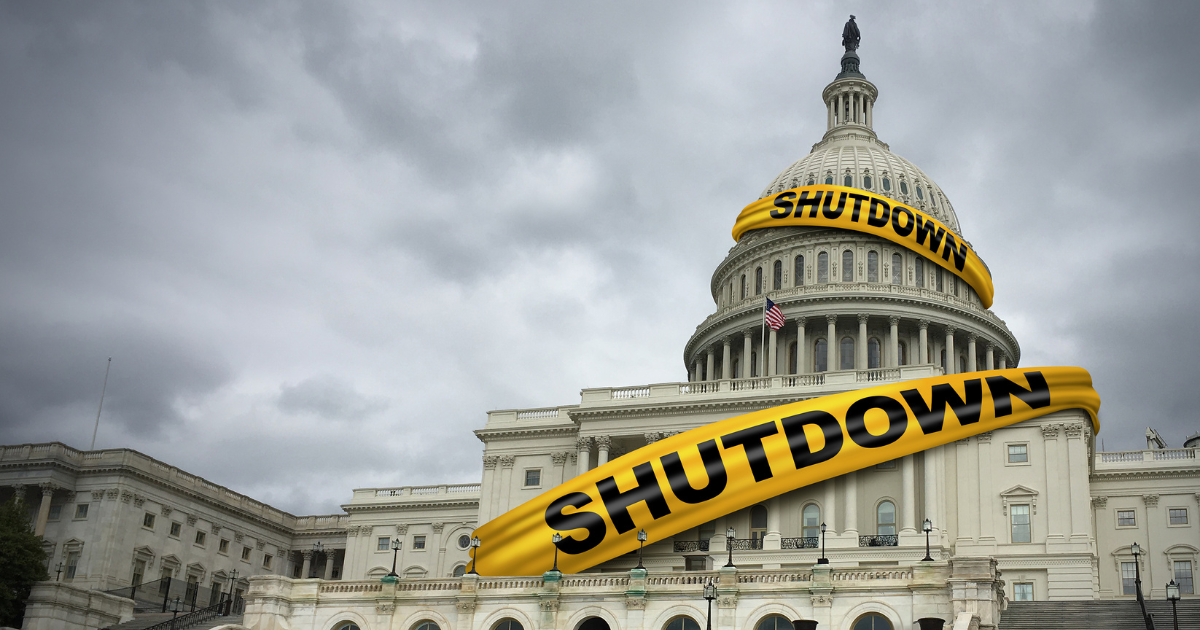
Sep 26 Washington Moves Closer and Closer to a Shutdown
(September 26, 2025)
As we get closer to the October 1 deadline for a complete federal appropriations package to be finalized, it is getting clearer that we will be heading towards a government shutdown. Organizations serving our most vulnerable children and families face a triple threat: a potential federal shutdown, cuts in federal funding, and a state budget impasse. These combined challenges will severely hinder their ability to deliver crucial services.
Different from the state budget cycle which runs from July 1 to June 30, the federal fiscal year is October 1 to September 30. After the September 30 deadline, if Congress is unable to pass a continuing resolution (CR) to keep the government funded past the Sept. 30 deadline, or approve all twelve appropriations bills, then the government will shut down.
Leading up to the Sept. 30 deadline, the House had passed an appropriations bill for Labor, Health and Human Services, and Education, which included flat funding for Head Start, 21st Century Learning Communities, and an increase for Career and Technical Education. Unfortunately, the House bill also made deep and devastating cuts to crucial programs, including $5 billion from Title 1 of the Every Student Succeeds Act. Overall, it proposed a total of $67 billion to the Department of Education, which is $12 billion (15%) below the FY25 enacted level. For specific education related details on the House bill, please see AASA: The Superintendent’s Associations’ summary.
The House bill also funds just over $108 billion for HHS, which is a reduction of 6 percent over the FY25 enacted level. This includes $100 million for the Secretary of the Department of Health and Human Services’ (HHS) Make America Healthy Again (MAHA) initiative.
This bill closely mirrors the President’s proposed budget from May, but instead of making consolidation, it proposes cuts to many programs. This alignment is typical if the majority leaders of the chamber and the president are in the same political party with the same ideology.
The House and Senate versions of the bill both included an exception (anomaly) for WIC to access the funds needed to serve WIC eligible individuals. The White House also recently released a list of these anomalies that they would like to include in a CR, and this included a request that WIC be able to serve projected caseloads. Allies for Children is glad to see the bipartisan support for the WIC program continue, and will monitor proposed funding for WIC items as short term CRs and FY26 funding is finalized.
In order to get a continuing resolution passed in both chambers, the House needs a simple majority, but the Senate requires 60 votes, meaning both Republicans and Democrats in the Senate need to agree on a funding package. At this time, there are reportedly few conversations happening between the majority and minority leaders in the Senate, meaning that an agreed upon CR is not close to being finalized. It is nothing new that Congress misses its deadline for completing appropriations bills, in fact Congress hasn’t completed all appropriations bills on time since 1997 and have relied on at least one CR.
The question becomes what happens to schools, WIC offices, Head Start programs, and other crucial government services if a shutdown occurs. The Center for Budget and Policy Priorities has put together a guide on the legal framework of a federal shut down that outlines what the Administration can and cannot do during a shut down. However, if there is a shutdown then the Office of Management and Budget has alerted agencies to prepare for mass firings. This would be unprecedented and likely to face a legal challenge in the courts. Specifically for educators, AASA has also put together a guide for school district directors on how to navigate the shutdown.
Allies for Children will be keeping a close eye on the possible shut down and the advancement of federal appropriations bills, advocating to preserve and increase funding for crucial programs that benefit children and families.
Jamie Baxter, Allies for Children Executive Director

